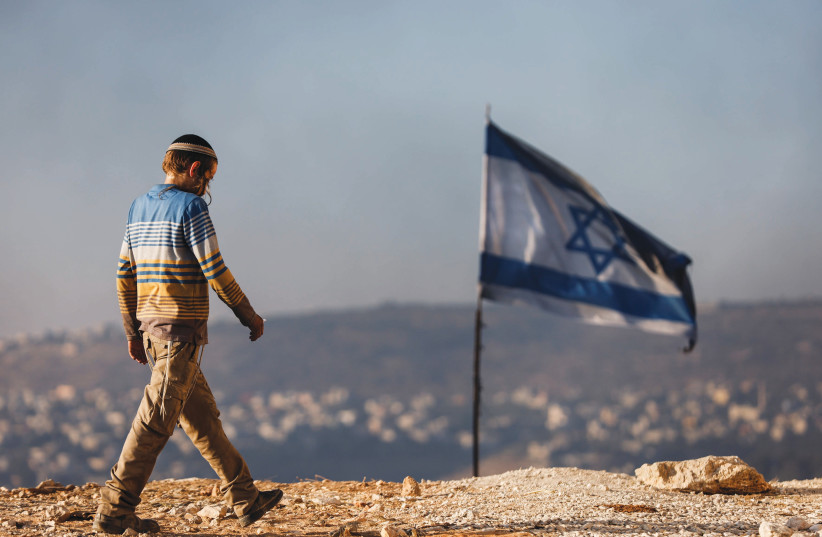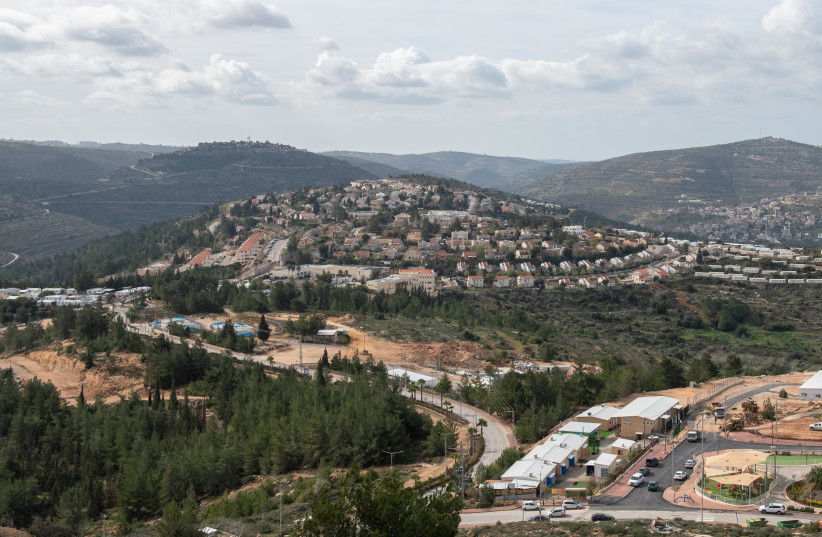Israel plans to advance plans for 1,000 new homes in the West Bank settlement of Eli in response to Tuesday’s terror attack at a nearby gas station that claimed four lives.
"Our answer to terrorism is to strike it hard and build our country,” Prime Minister Benjamin Netanyahu’s office stated on Wednesday.
He approved the move together with Defense Minister Yoav Gallant and Finance Minister Bezalel Smotrich, who holds a ministerial position in the Defense Ministry.
Those units would be in addition to the 4,560 new homes the Civil Administration’s Higher Planning Council plans to advance when it convenes later this month. It is expected to approve the deposit of a plan for 500 new homes in Eli.
The construction of 1,500 units would more than double the size of the community, which according to the Central Bureau of Statistics had a population of 4,613 in 2021.
 A JEWISH teenager in Givat Evyatar, near the Palestinian village of Beita. (credit: AMIR COHEN/REUTERS)
A JEWISH teenager in Givat Evyatar, near the Palestinian village of Beita. (credit: AMIR COHEN/REUTERS)Eli is outside the main settlement blocs
Eli is located close to 24 kilometers over the pre-1967 lines, off of Highway 60 in the Binyamin region. Like all of the West Bank settlements, former US President Donald Trump’s peace plan drew it into the section of Area C over which Israel would eventually be allowed to apply sovereignty.
It is, however, outside the boundaries of the security barrier. The international community and the Israeli Left hold that it is an isolated settlement is outside the blocs and located so deep into the West Bank that its presence makes it more difficult to create a viable Palestinian state in Area C.
The international community had already condemned Israel this week over the intention to advance 4,560 homes and the amendment to a 1996 government decision that would fast-track the approval process for settler building projects.
Separately, settler families returned to the Evyatar outpost in the Samaria region of the West Bank, a fledgling hilltop community they voluntarily abandoned two years ago after striking an agreement with the government that the hilltop would be legalized as a new settlement starting with the approval for the construction of a yeshiva at the site.
To date, neither the previous government or the existing one have kept their pledge in that regard.










